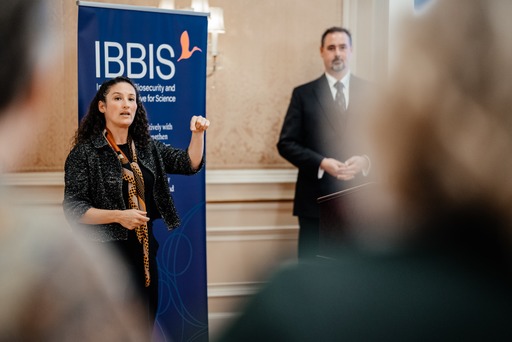NTI Senior Advisor Angela Kane spoke about how the world can address gaps in the global biosecurity architecture at the School of Oriental and African Studies (SOAS) University of London on October 13.
SOAS Director Dr. Adam Habib moderated the discussion and Dr. Wilmot James, Senior Research Scholar at the Institute for Social and Economic Research and Policy (ISERP) at Columbia University, joined Kane as a panelist for the hybrid event.
In a recent article, Kane made the case for strengthening the United Nation’s capabilities to assess whether high-consequence biological events emerged naturally, as the result of a laboratory accident, or were deliberately caused through a biological weapons attack. While the UN Secretary-General’s Mechanism (UNSGM) has the mandate to investigate allegations of deliberate bioweapons use, and the World Health Organization (WHO) has a strong comparative advantage in investigating naturally-occurring disease outbreaks, there is no existing mechanism that can quickly respond to and investigate the source of biological events of unknown origin.
To address this gap, Kane advocated for the creation of a Joint Assessment Mechanism (JAM), a proposed unit in the UN Secretary General’s Office with the mandate to address the source of ambiguous biological events. The capacity to rapidly identify the source of emerging pandemics is critical to mitigating their effects in real time and guarding against future risks. The JAM can build on existing UN investigative capabilities and bridge the gaps between them.
Kane highlighted how COVID-19 uncovered concerning vulnerabilities in global pandemic preparedness, painting a dim outlook for our collective ability to address future biological events that could be as devastating as COVID-19.
James observed that the JAM should be placed within the UN system to have maximum operational and moral authority. To be functional, the JAM must work with the global scientific community, and the UN must enable access to sites that are crucial to JAM investigations.
Watch a recording of the event.




